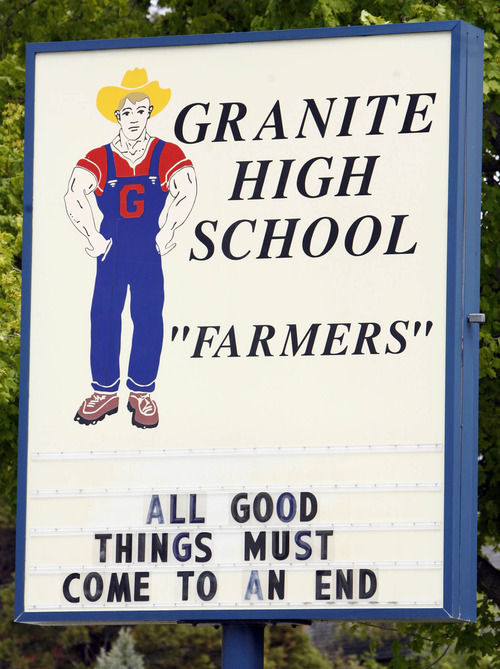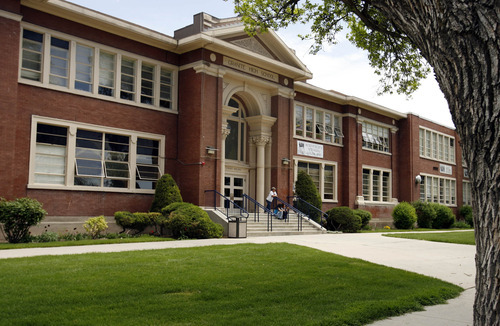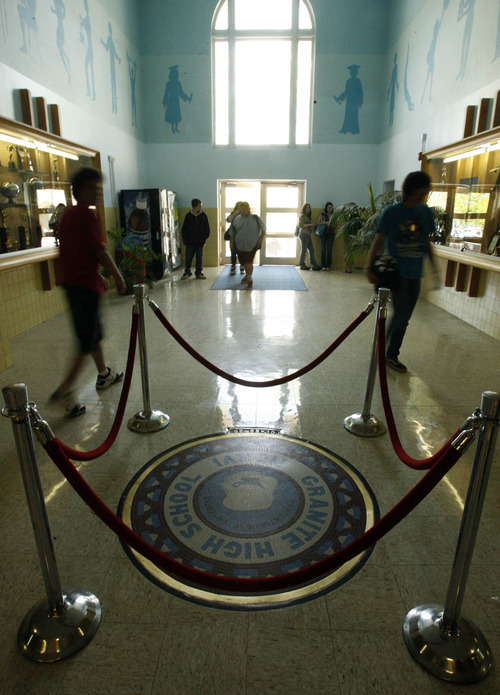This is an archived article that was published on sltrib.com in 2011, and information in the article may be outdated. It is provided only for personal research purposes and may not be reprinted.
By an 11-vote margin, South Salt Lake voters defeated a $25 million bond proposal to buy Granite High and turn it into a community center.
According to unofficial returns, 919 voters opposed the bond while 908 backed it. Being that close, the outcome could change by the official canvass with additional absentee ballots. The possibility of a recount looms as well.
"It may look like a defeat right now," City Councilman Casey Fitts said, "but it will be two weeks until we have the actual results."
City officials put the bond proposal on the ballot as a means of acquiring Granite's four buildings and surrounding 27 acres from Granite School District, which closed the 105-year-old high school after its final graduation ceremony in 2009.
The $25 million bond would cover the $8.75 million purchase price, seismic upgrades to three of the four buildings and other renovations that would turn the campus into a civic center with space for a charter school, senior and after-school programs, offices for nonprofit groups, a recreation center based around the existing pool and gym, performing arts space, sports fields and open space for community gatherings.
Paying off the bond would cost owners of a $165,000 home about $7 a month for 30 years. A business of the same value would pay $151 a year, city officials calculated. About 88 percent of that monthly fee would pay for the bond, the rest for facility operations.
Opponents argued that was too steep for the lower middle-income residents of South Salt Lake, whose poverty level is twice the state average. Business owners such as Gary Sandberg, of Granite Mill & Fixture, complained that a tax increase would be hard to take in these tough economic times, while Ginger Fairbanks, of Citizens for a Responsible South Salt Lake, said the city would be better off allowing a private developer to take over the property, adding it to the city's tax rolls.
She also accused city officials of campaign finance violations for allegedly using taxpayer funds to promote a bond vote. Fitts countered that the city went to great efforts to be unbiased in its education push. He also said now was the time to buy Granite. "Construction costs are lower," Fitts said, "the property's assessment is lower and interest rates are lower."







